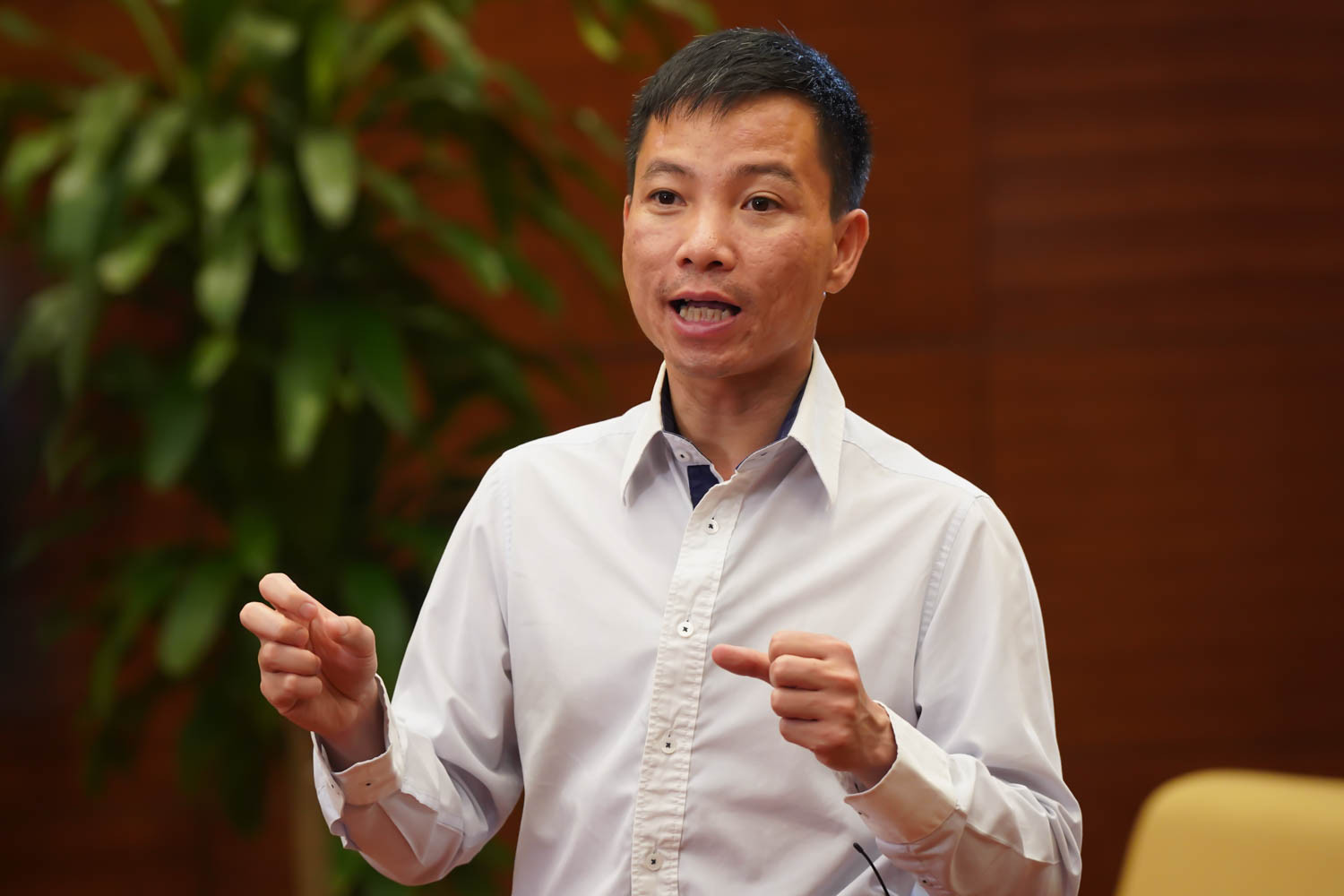Dr. Le Viet Quoc, a Vietnamese AI scientist, is known for pioneering deep learning at Google. His groundbreaking research has contributed to AI applications in natural language processing and computer vision.
Speaking at the International Conference on Artificial Intelligence and Semiconductors (AISC) 2025, Dr. Le Viet Quoc shared his insights on investment strategies for AI and semiconductor development.
Vietnam’s opportunity in AI and semiconductors

Dr. Quoc acknowledged that this is a historic opportunity for Vietnam to develop semiconductor and AI technologies.
"The timing is ideal - neither too early nor too late. For example, entering the smartphone industry now would be too late since it has been established for years. However, AI and chip technologies are still emerging and full of potential," he explained.
Vietnam's key advantage lies in its human resources. "Everything - whether building pyramids, landing on the moon, or developing AI - depends on human talent. Vietnam has strong STEM capabilities, giving it a competitive edge."
Competing in the global tech landscape
Vietnam competes with regional powerhouses such as Singapore, India, and China in human capital.
"Singapore lacks Vietnam's manpower, while China faces its own geopolitical challenges with the U.S. Vietnam's main competitor in this space is India," Dr. Quoc noted.
To leverage this opportunity, he stressed the importance of improving higher education quality, expanding postgraduate research, and establishing research institutes to foster local talent.
According to Dr. Quoc, the semiconductor industry demands immense financial resources, with chip production alone requiring investments of billions of dollars.
"Vietnam would struggle to compete in low-cost chip manufacturing. Instead, the country should prioritize AI investment, as it requires fewer resources and has a long runway for future growth," he advised.
For semiconductors, he suggested Vietnam focus on chip design rather than chip production. "Chip design yields higher profit margins and is better suited to Vietnam’s available resources and expertise."
Key focus areas for AI development

Dr. Quoc cautioned against rushing into AI development without strategic planning. "If Vietnam simply replicates existing AI companies like DeepSeek, it will always be playing catch-up."
Instead, he proposed a more innovative approach, such as using AI for chip design - a niche that combines AI and semiconductors.
For chatbot development, he recommended identifying weaknesses in existing models and innovating in those areas to create a competitive advantage.
When asked whether Vietnam benefits from being a "latecomer" in AI, Dr. Quoc acknowledged that while early movers have advantages, those who follow can also leverage lessons learned.
"In marathons, some runners stay behind to avoid headwinds. Similarly, latecomers can learn from the mistakes of pioneers," he explained.
He pointed out that major AI companies like OpenAI’s ChatGPT and Google’s Gemini face scalability challenges due to their massive user bases. "Newer AI firms can focus on refining their models without the burden of serving millions of users from day one," he said.
Dr. Quoc believes Vietnam can develop AI models with high efficiency and lower costs.
"AI models in computer vision, speech processing, and natural language processing (NLP) are becoming significantly cheaper. While the first AI models cost hundreds of millions of dollars, subsequent versions require only $20 million, then $5 million, and costs continue to drop. This makes AI development in Vietnam entirely feasible."
Trong Dat